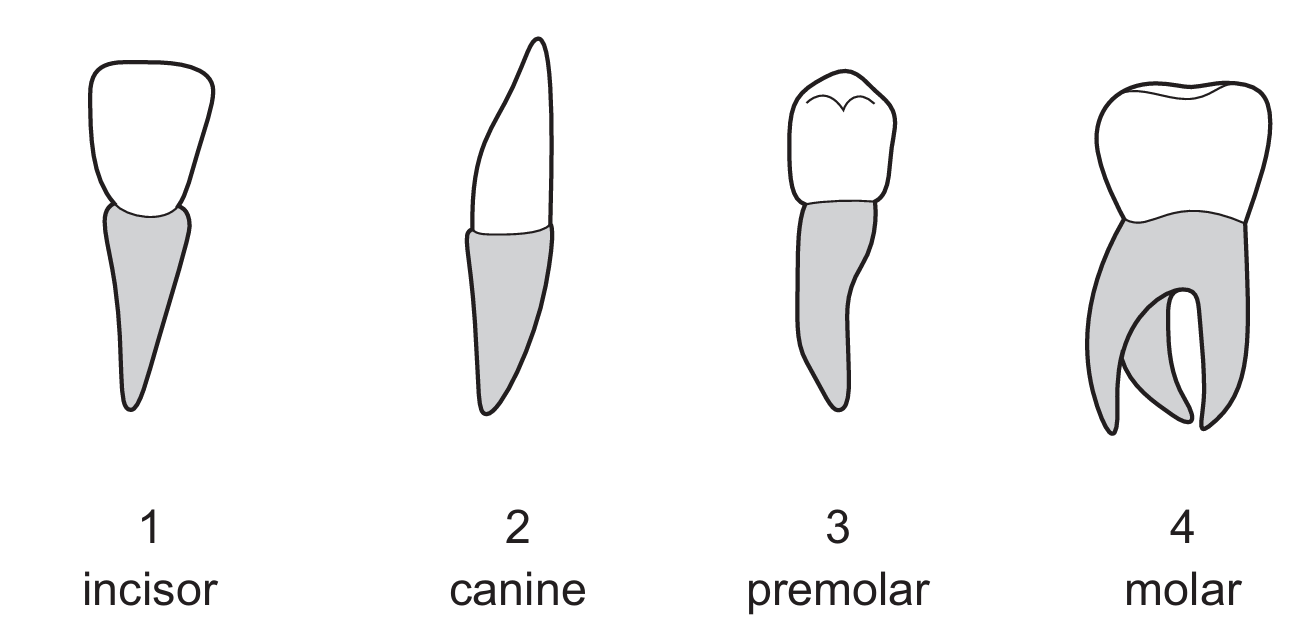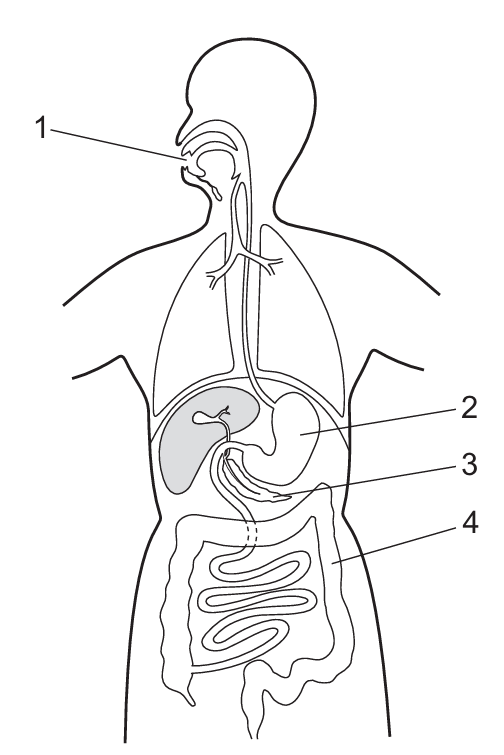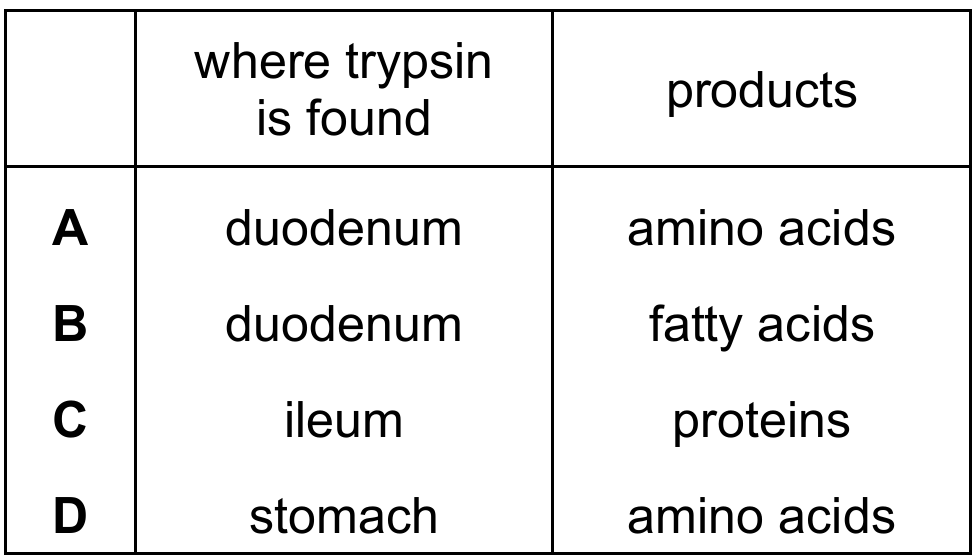Question
The diagram shows the four types of human tooth.

Which teeth are used for grinding food?
(A) $1$ and $2$
(B) $1$ and $4$
(C) $2$ and $3$
(D) $3$ and $4$
(B) $1$ and $4$
(C) $2$ and $3$
(D) $3$ and $4$
▶️ Answer/Explanation
In the human mouth, different teeth are specialized for specific mechanical digestion tasks. Incisors (1) are chisel-shaped for biting and cutting, while canines (2) are pointed for tearing food. In contrast, premolar (3) and molar (4) teeth have broad, flat surfaces with ridges called cusps. These wide surfaces are specifically designed to crush and grind food into smaller pieces, increasing the surface area for enzymes to work. Therefore, the teeth responsible for grinding are the posterior teeth.
✅ Answer: (D) $3$ and $4$
✅ Answer: (D) $3$ and $4$
Question
In which parts of the digestive system does physical digestion occur?

(A) $1, 2$ and $3$
(B) $1$ and $2$ only
(C) $2$ and $3$ only
(D) $4$ only
(B) $1$ and $2$ only
(C) $2$ and $3$ only
(D) $4$ only
▶️ Answer/Explanation
Physical (mechanical) digestion involves the breakdown of food into smaller pieces without changing its chemical nature. In the mouth (1), teeth perform mastication to grind food. In the stomach (2), muscular walls churn the food (peristalsis) to mix it with gastric juices, further breaking it down physically. While the small intestine (3) involves bile emulsification, the primary sites for significant mechanical churning and grinding are the mouth and stomach. The large intestine (4) is mainly responsible for water absorption rather than digestion.
✅ Answer: (B)
✅ Answer: (B)
Question
Where in the alimentary canal is the enzyme trypsin found and what are the products of the reaction trypsin catalyses?

▶️ Answer/Explanation
Trypsin is a protease produced by the pancreas in an inactive form (trypsinogen) and secreted into the duodenum, which is the first part of the small intestine. Its primary role is to catalyze the hydrolysis of peptide bonds in proteins. While trypsin specifically breaks down large polypeptides into smaller peptides, in the context of general digestive products for proteases in such assessments, it leads to the eventual production of amino acids. Option B is incorrect because fatty acids are products of lipid digestion, and Option D is incorrect because the primary protease in the stomach is pepsin, not trypsin.
✅ Answer: (A)
✅ Answer: (A)
